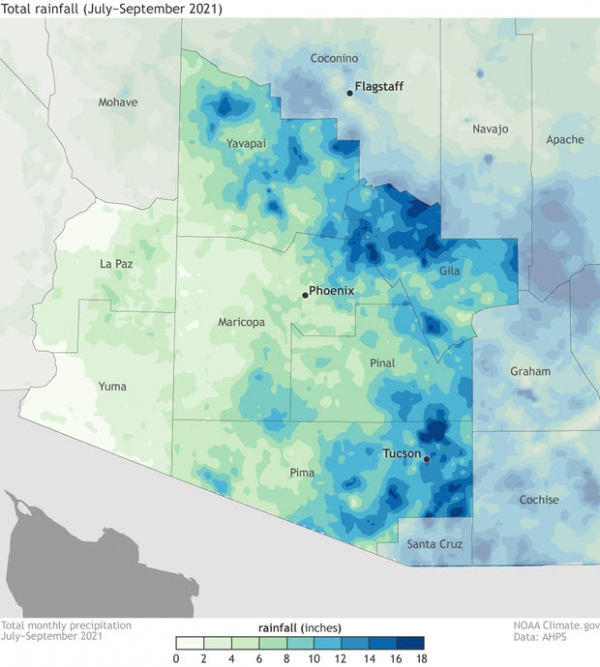The largest identified single outbreak in U.S. history of West Nile virus disease, a potentially fatal mosquito-borne illness, occurred in Arizona last summer.
Over 1,600 cases of West Nile virus disease were reported in the summer and fall of 2021, with the outbreak centered in Maricopa County (1,463 cases reported to Arizona Department of Public Health as of 3/28/2022). Why last year? A wetter-than-average monsoonal season likely contributed to the magnitude of the outbreak.
How did climate influence the 2021 West Nile virus outbreak in Arizona?
From June to September, according to PRISM precipitation data, 6.6 inches of rain fell across Maricopa County, distributed over 23 days of measurable precipitation. On average, 2.2 inches fall during this period, concentrated in fewer days. The continual presence and increased amount of moisture maintained mosquito breeding sites and potentially facilitated a boom in the mosquito population when the virus was circulating in the local bird populations.
Continue reading at NOAA Climate
Image via NOAA Climate




